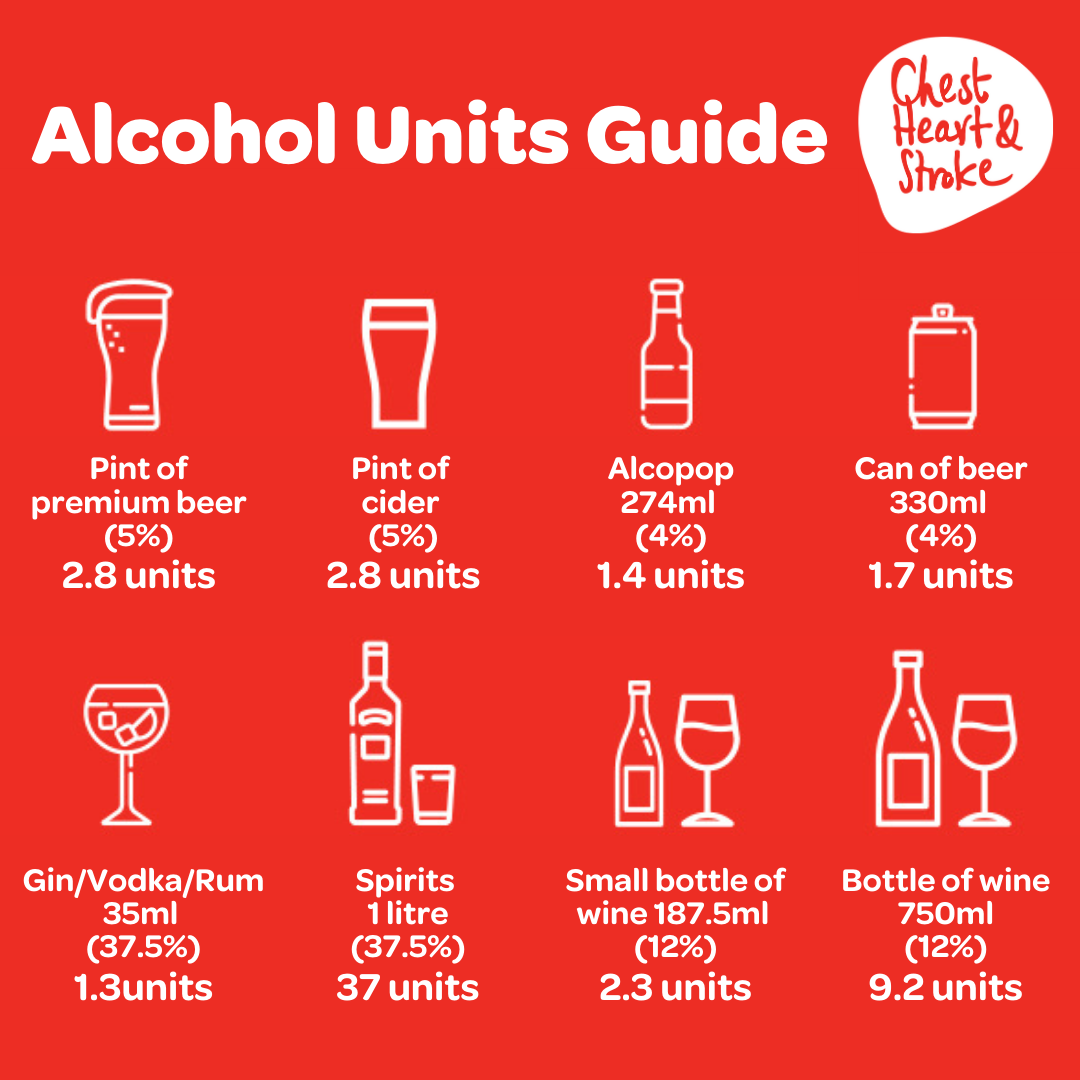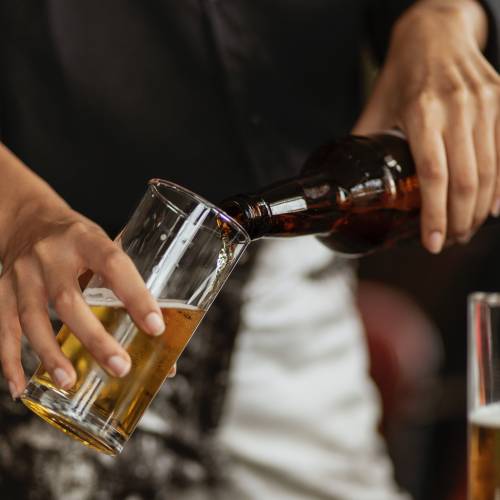Drinking alcohol is also strongly linked to liver problems and some cancers. Meanwhile, because alcohol contains a lot of calories, drinking a lot can lead to weight gain or even obesity, which are also bad for your heart health.
-
If you drink alcohol, it’s important to keep within the guidelines:
- Men and women should not drink more than 14 units of alcohol each week.
- You should have several alcohol-free days each week.
-
Binge drinking is defined as drinking alcohol in a short space of time or drinking to get drunk.
- For men this equates to drinking more than eight units in one sitting.
- For women it means drinking more than six units in one sitting.
If you do drink as much as 14 units per week, spread this our evenly over three days or more and do not binge drink as this can cause additional damage to your body. If you drink too much, avoid alcohol for 48 hours to allow your body time to recover.
-
In the UK, alcohol is measured in units.
One unit is equal to 10mls of pure alcohol and guidelines state that both men and women shouldn’t drink more than 14 units per week, ideally spread over at least three days. Guidelines from the UK Chief Medical Officer for the government state that there’s no safe level of alcohol consumption.

-
Alcohol doesn’t have any nutritional benefit and contains a lot of extra calories.
-
- Know your limits - how many units are in your favourite drinks?
- Check out the alcohol content ABV%
- Have something to eat before you start drinking.
- Alternate each alcoholic drink with a non-alcoholic drink.
- Avoid drinking in rounds or having a kitty - it may lead to drinking more than you intended.
- Keep track of your drinks and don’t let anyone top up your drink until it’s finished.
-
If you’re concerned about your alcohol intake or that of a friend or family member, please visit drugsandalcoholni.info or make an appointment with your GP.
Our Well Checks include a lifestyle assessment and give you the opportunity to speak to one of our qualified health promotion officers about any concerns you have around your alcohol intake, and receive personalised tips and advice.
Download our Alcohol Factsheet:
-
Alcohol FactsheetDownload pdf

